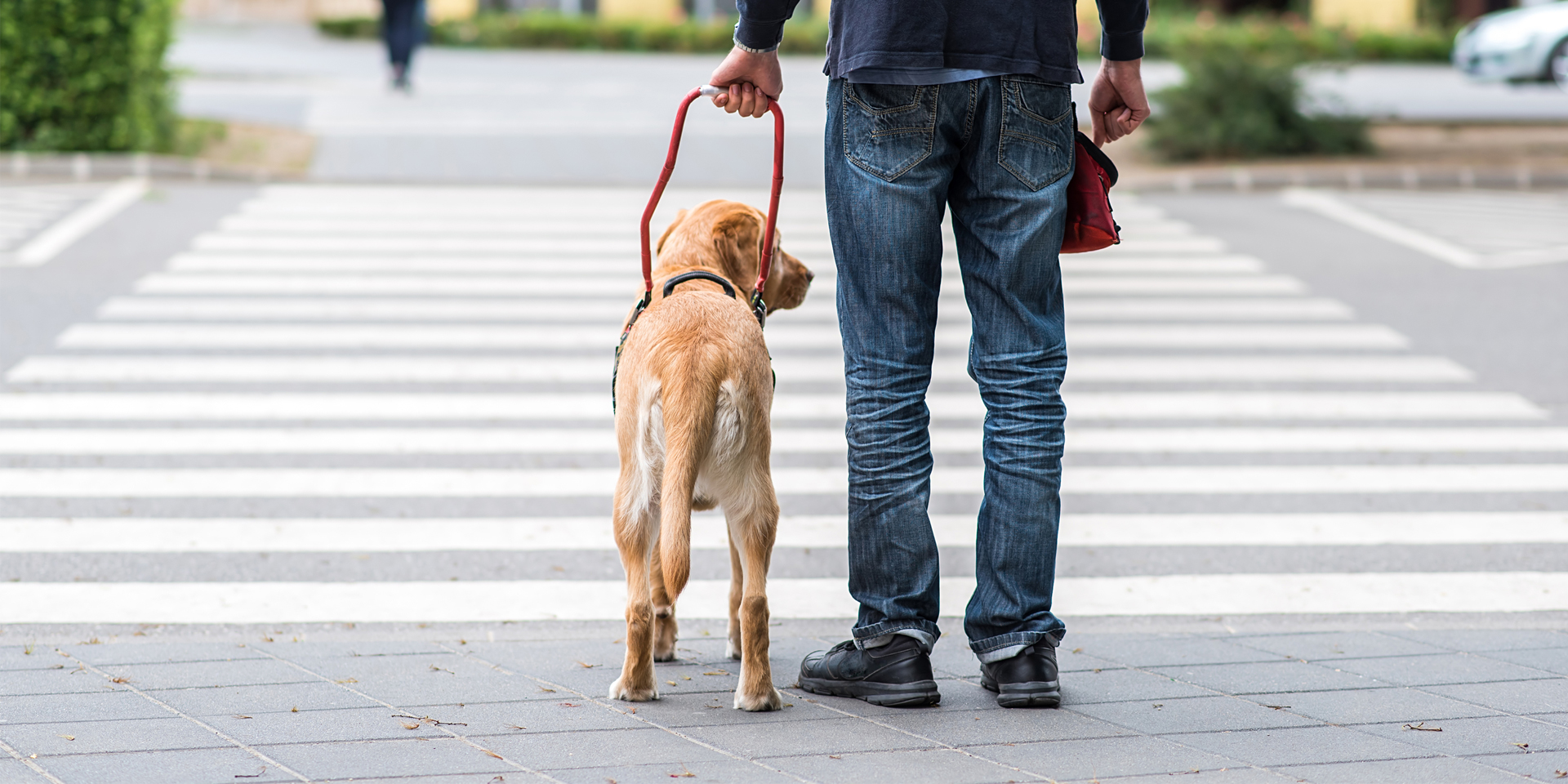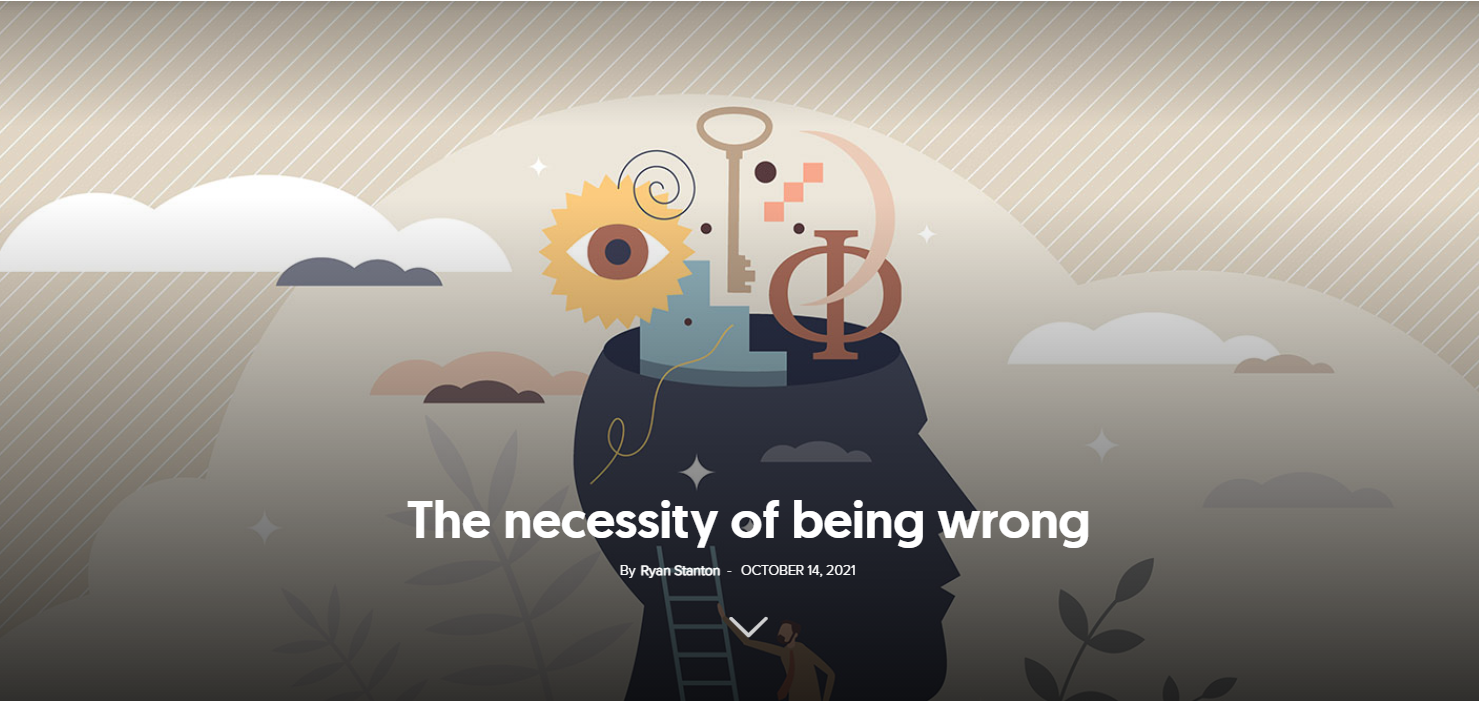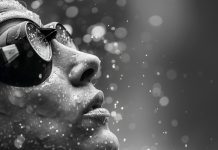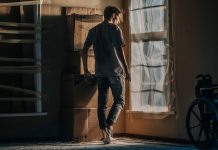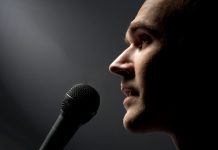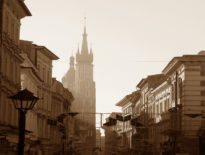Close your eyes, cover your ears, and imagine that all your life you will need to get by without being able to see or hear much. Perhaps merely imagining this makes you shiver, and in no way can you associate such a life with joy, independence, or travel. Tony Giles is one of those people who has managed to successfully remove all these prejudices.
Tony was born in 1978 in a small town in the south of England. When he was just nine months old, his parents noticed that he had a vision problem, so they took him to an ophthalmologist. The diagnosis was terrible: he had retinopathy, a rare and degenerative disease, and photophobia. At age six, another diagnosis was added to the first two, most likely also due to genetic causes. His hearing was severely impaired in both ears, and the situation was going to get worse, so he began to wear a hearing aid.
Until the age of 10, Tony was able to see in black and white, with the help of glasses that protected him from strong light. Then, he went completely blind. He was left with the memory of the sunsets in his hometown, of the sun as a “big bright ball of light sinking in the distance”. Thanks to these memories, he is grateful that he was able to see for at least a few years.
After he went blind, because the normal school he attended could no longer meet his needs, he had to commute to another city to attend classes at a special school. This school changed his life and offered him new perspectives. It was there that he learned to read Braille, to walk with a cane and adeptly use public transportation. He participated in sport classes or pottery workshops. It was also there that he discovered that being blind, or partially blind, is not the greatest tragedy. He had classmates with much bigger problems than his own so, in time, he came to even consider himself privileged.
He had just passed most of the national exams and was preparing to enter college when his father died. Just a few months later, his best friend, who suffered from muscular dystrophy, died as well. The two deaths threw him into a terrible state of loneliness and sadness. So he began to drown his sorrows in alcohol and intense study, regardless of how paradoxical this association might sound.
His university did not offer courses adapted for people with disabilities, so he had to find ways to cope. Using his scholarship money, he paid his fellow students to help him proofread his scientific papers or find books for him. Fortunately, computer programs for the blind had already begun to appear, which made his life easier. His colleagues would scan the books, then special software programs turned the written text into audio.
Majoring in American studies also offered him the opportunity to study in the USA. He had been there before, during high school, but each time he had gone with a group of friends. Now he had to fend for himself, in a whole new city: New Orleans. This was not impossible for him, and this experience gave him a new purpose. He began to dream of visiting every country in the world on his own. At that time, it seemed the most powerful way to show that disability can never stop someone from achieving everything they wanted to achieve.
In addition, traveling alone gave him great satisfaction. He knew that if he had a helpful companion, he would always rely on them to interact with other people. But he wanted to know the world himself, to interact with as many people as possible, and to understand as much as possible about the culture of the countries where he planned to go.
Many wondered how he would manage, including his family, but they were confident he would be fine. They saw him determined and organized, they knew that he did not take unnecessary risks and that he had a very good sense of orientation. In addition, hearing aids had become more and more effective, so his hearing was considerably improved, reaching up to 80 percent.
He began travelling in 2001. For five months he went backpacking through New Zealand and Australia, followed by Thailand and Vietnam. He had a monthly stipend that was being transferred to him from an account left to him by his father, but he did not use it much in his travels. He chose the cheapest means of transport, and for his accommodation he turned to the least expensive options: couch surfing (sleeping at the homes of people willing to offer accommodation for very small amounts of money, or even free), hostels, and camping sites.
During his time in South Asia, he learned that he had kidney failure and that he urgently needed a transplant. The causes for the disease were, again, unknown. Fortunately, his stepfather was able to donate a kidney, and the operation went very well. At the same time, he managed, with the help of his friends, to give up alcohol for good. He had been aware for some time that he had a big problem. Completely restored in just a few months, Tony was able to set off again.
He visited several African and South American states in 2004, then Central Europe, after which he headed east. So far, Tony has visited 127 countries on all 7 continents and all 50 US states. He has had thrilling adventures, has bungee-jumped 16 times, parachuted 3 times, witnessed coups in some of the countries he visited, and got lost countless times, but nothing put him off.
Although few understand how he can enjoy places he doesn’t see, Tony talks about another way of knowing the world. He has touched thousands of important monuments of the world and countless walls with different textures and shapes. He has walked on dozens of differently paved roads. He has felt the vibrant and noisy atmosphere of dozens of capitals, smelled the most inviting spices in the markets of the Orient, as well as the fresh and suddenly much colder air at the entrance to canyons.
His favourite country is New Zealand, he would love to return to Armenia, and his most beautiful memory is from Antarctica. He spent some wonderful days there, he says, surrounded by breaking ice, noisy penguins, and shells brought ashore by the whales, which he was able to touch. He most often returns to Greece, where he met Tatiana, his girlfriend, who is also blind. They have also travelled together during the nine years since they have known each other, but he always returns to travelling alone.
Attentive to every detail, on the go without a cell phone or any other kind of modern technology, Tony relies on the help of those he meets. He depends on them, but that does not scare him, although he also had a few unpleasant experiences. His frequent travels have taught him that the world is a much friendlier place than it seems. This is because the essence of truly beautiful journeys is people and their stories, says Tony.












